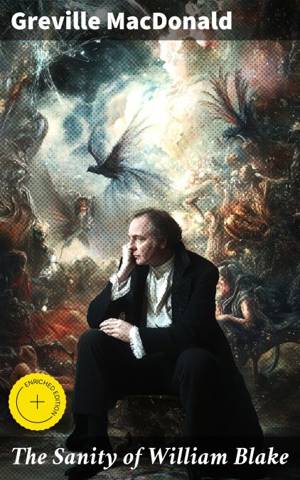
Bedankt voor het vertrouwen het afgelopen jaar! Om jou te bedanken bieden we GRATIS verzending (in België) aan op alles gedurende de hele maand januari.
- Afhalen na 1 uur in een winkel met voorraad
- In januari gratis thuislevering in België
- Ruim aanbod met 7 miljoen producten
Bedankt voor het vertrouwen het afgelopen jaar! Om jou te bedanken bieden we GRATIS verzending (in België) aan op alles gedurende de hele maand januari.
- Afhalen na 1 uur in een winkel met voorraad
- In januari gratis thuislevering in België
- Ruim aanbod met 7 miljoen producten
Zoeken
The Sanity of William Blake E-BOOK
Enriched edition. Challenging Perceptions of a Creative Genius
Greville MacDonald
E-book | Engels
€ 1,99
+ 1 punten
Omschrijving
In "The Sanity of William Blake," Greville MacDonald presents a profound exploration of the enigmatic poet and artist William Blake, challenging the prevailing notions of his madness. Through a meticulous examination of Blake's writings and a detailed analysis of his philosophical ideas, MacDonald situates Blake within the literary context of the Romantic era, showcasing his visionary genius and unorthodox perspectives. The book employs a blend of scholarly rigor and literary eloquence to argue that Blake's perceived insanity is, in fact, a radical form of sanity that transcends conventional rationality, inviting readers to reassess the boundaries of creativity and mental health in artistic expression. Greville MacDonald, the son of famed novelist George MacDonald, was steeped in the rich traditions of both literature and psychology. His personal experiences and familial connections to the literary circles of his time informed his fascination with Blake, a figure whose radical thought often confounded and perplexed his contemporaries. MacDonald's insights are influenced by his deep appreciation for Romanticism and his desire to vindicate Blake against the misinterpretations of his legacy, positioning him as a critical voice in the discourse of mental health and artistry. This book is highly recommended for scholars, students, and enthusiasts of literature and art alike. MacDonald's nuanced perspective not only sheds light on Blake's work but also invites a reconsideration of what it means to be 'sane' in a society that often misunderstands and misclassifies creative genius. "The Sanity of William Blake" is an essential addition to the libraries of anyone seeking to deepen their understanding of Blake's profound contributions to poetry and art.
In this enriched edition, we have carefully created added value for your reading experience:
- Hand‐picked Memorable Quotes shine a spotlight on moments of literary brilliance.
- Interactive footnotes clarify unusual references, historical allusions, and archaic phrases for an effortless, more informed read.
In this enriched edition, we have carefully created added value for your reading experience:
- Hand‐picked Memorable Quotes shine a spotlight on moments of literary brilliance.
- Interactive footnotes clarify unusual references, historical allusions, and archaic phrases for an effortless, more informed read.
Specificaties
Betrokkenen
- Auteur(s):
- Uitgeverij:
Inhoud
- Aantal bladzijden:
- 30
- Taal:
- Engels
Eigenschappen
- Productcode (EAN):
- 4064066062781
- Verschijningsdatum:
- 7/12/2020
- Uitvoering:
- E-book
- Beveiligd met:
- Digital watermarking
- Formaat:
- ePub

Alleen bij Standaard Boekhandel
+ 1 punten op je klantenkaart van Standaard Boekhandel
Beoordelingen
We publiceren alleen reviews die voldoen aan de voorwaarden voor reviews. Bekijk onze voorwaarden voor reviews.









